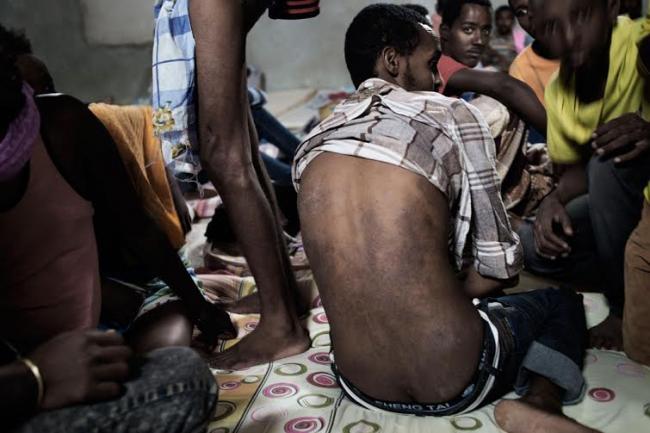Just Earth News/IBNS 29 Jan 2016, 10:45 am Print

Photo: UNICEF/Alessio Romenzi
“We cannot wait for a political solution in order to respond, we need to act now,” Syed Jaffar Hussain, WHO Representative for Libya, said during a special briefing on Libya in Geneva.
“The health situation in Libya is rapidly deteriorating, with extensive displacement, damage and closure of health facilities in conflict areas,” stressed Reida Oakely, Libya’s Minister of Health.
Of great concern are health risks such as increased communicable diseases, outbreaks of measles and polio, mortality, as well as limited healthcare, services and prevention especially for vulnerable groups.
“We need both financial resources and the international humanitarian community to step up efforts to help save the lives of children, mothers and the elderly who are most at risk,” said Hussain, adding “this is not about politics; it is about health needs.”
The UN health agency and its partners are also facing some serious challenges on the ground. There are critical shortages of health care workers as the majority of nursing staff were evacuated in 2014.
Further, health facilities such as hospitals, laboratories, blood banks are limitedly functional while life-saving medicines and vaccines are also in short supply.
“We are calling on all parties to guarantee unrestricted, long term delivery of humanitarian aid and unconditional movement of health workers,” urged Hussain.
Since November 2015, WHO has been able to reach almost 250,000 people through the provision of medicines, mobile clinics, health teams, provision of fuel and safe water.
However, “we need to be able to reach all affected people to identify health needs, assess nutritional status, and ensure health services are available. If access for the provision of aid is not made immediately available, millions of people are at risk of facing a humanitarian and health disaster,” underscored Mr. Hussain.
Currently WHO and health partners are seeking $50 million to meet the urgent needs of some 2 million people in Libya.
In addition to tackling health risks, the funds will also be used to strengthen the existing health structure and provide temporary mobile clinics and outreach services.
Since the escalation of the conflict in July 2014, violence and instability have spread to all around the country, with more than 3 million people – nearly half of the total population – affected. Almost 2 and a half million people are in need of urgent humanitarian assistance, of which 1.9 million people have serious, unmet health needs.+
- Pakistan: Police recover two bullet-ridden bodies from Balochistan
- IDF strikes Hezbollah targets in Lebanon after projectile fire toward Northern Israel; 31 killed
- Pakistan: Armed gunmen kidnap 14 workers during coordinated raids in Balochistan
- ISIS-inspired plot foiled in UK: Two men get life sentences for targeting Jewish community
- India rejects allegations, urges Pakistan to tackle its ‘home-grown ills’





-1763561110.jpg)
